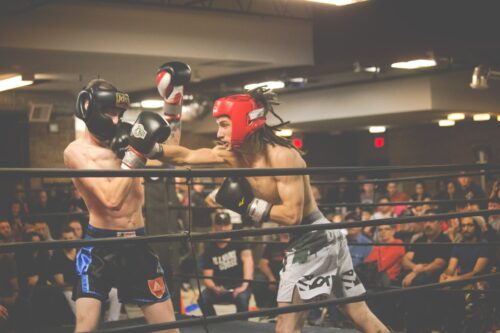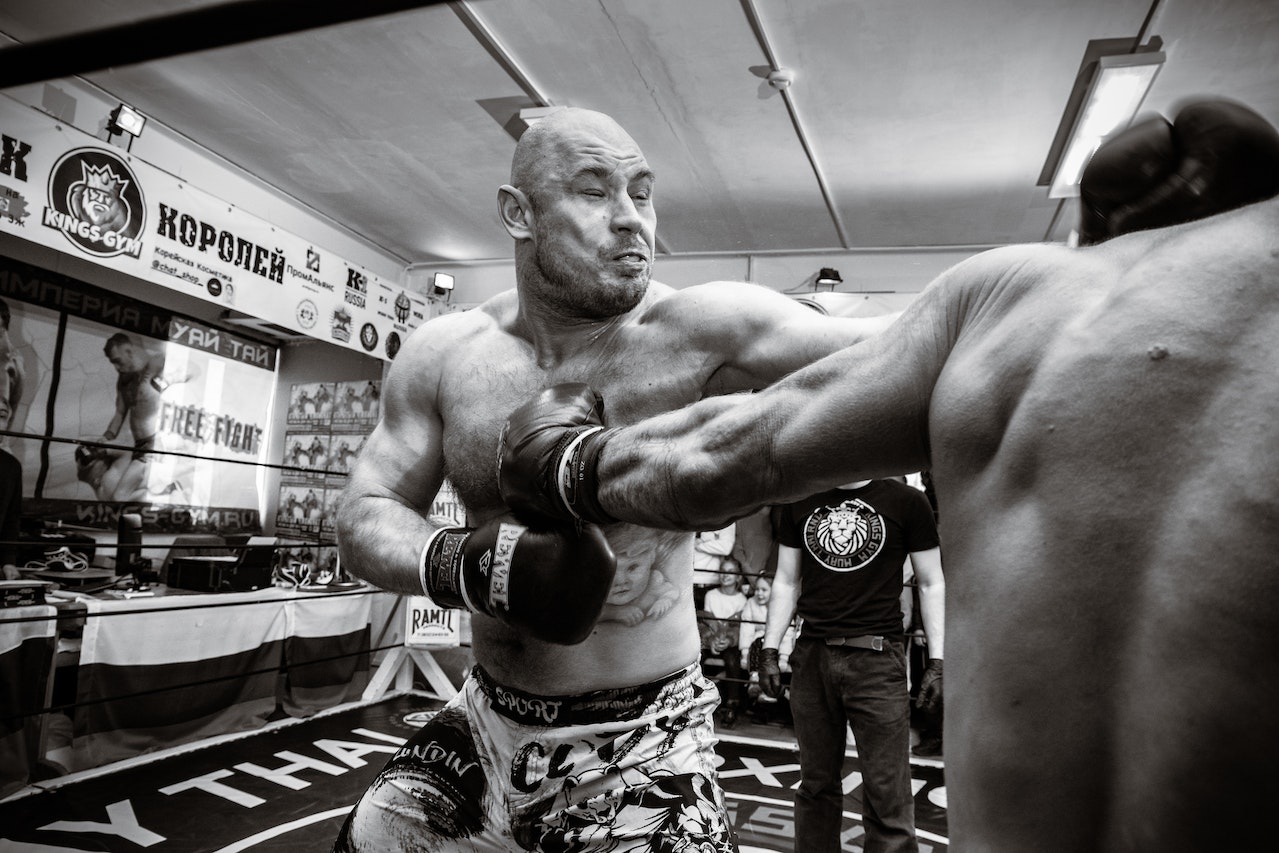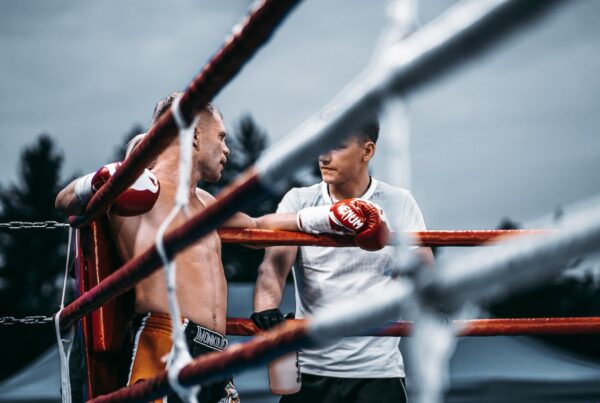Fighters don’t fight at natural weight to look for weight advantages over their opponents. Size and weights are extremely important to make sure fights are evenly matched.
Usually, fighters look for as many advantages as possible and this is the pivotal reason the fighters dehydrate themselves before weigh-ins, and rehydrate back. Fighting is a brutal sport, and it takes a lot of techniques to come out of the ring as a winner.
A difference in weight can cause millions of dollars as well as injury to any opponent. Fighters need to fit themselves in the weight category properly before going for a fight.
The UFC legend Conor McGregor at his weigh-in for the fight at Featherweight was 145 lbs, but the fight happened, he was around 155 lbs. The UFC lightweight champion surely knows the significance of size in the game.
In another case of Anthony Pettis, the former UFC lightweight champion did the same when he dropped down to 146 lbs to weigh in for a fight although the limit was 145 lbs, one pound over is acceptable in such cases. However, when he came in for the fight in Toronto, his weight was over 10 pounds.
I had the same exact question when I first started practicing and watching martial arts. In this article, I will be looking at the importance of size and why fighters don’t fight at their natural weight.
I will discuss why fighters prefer lower weights and heavier fighters hard to fight. Let’s dig into the role of size in fighting.
Table of Contents
Why Don’t Fighters Fight at Their Natural Weight?
Fighters don’t fight at their natural weight to gain size advantages over their opponents. Cutting down weight can allow you to fight lighter fighters in the arena and increase your chances of winning.
It’s not acceptable to be slower, exhausted, and have weak cardio during a fight. Cutting down weight has a lot of benefits too. Competitors are looking for as many advantages as possible over the opponent. In almost every fight sport, fighters don’t prefer fighting at their natural weight.
Also Read: Is Punching Power Genetic? Here’s The Science Behind It
Why Do Fighters Fight at Lower Weight?

Fighters fight at lower weight to gain size advantage.
Fighters fight at a lower weight to gain a size advantage over the opponent. The lower weight can highly benefit the fighter to be swift in the fight and change the outcome.
The lower your weight, the more lightweight people you will have to fight. Cutting your weight before the fight gives you an upper hand, as you enter the ring with your natural weight to fight an opponent with lesser weight than yours.
The major strategy is to cut down weight when it’s the time for weigh-in and regain it when it’s fight time. Fighting at a lower weight allows you to enter a category of people who are comparatively weaker due to their size.
As you come down to lower weight with the experience or strategy of your natural weight fights, you often have an upper hand.
Does Weight Matter in a Fight?
Weight surely matters in a fight. The heavier opponent has an increased muscle mass and power to strike hard. Both weight and height play a significant role in determining the outcome of the fight.
No matter how skillful the lightweight fighter is, the blow is much more intense by a heavy fighter. It is the main reason that there are weight classes in sports. It is to avoid any kind of injustice.
The bigger you are, the more chances you have to beat the opponent. Technique and experience can help you gain dominance over a bigger guy, but the weight factor is still there. You need to go through extraordinary practice to take down a bigger fighter.
Does Body Size Matter in a Fight?
Body size matters a massive amount in a fight. When two fighters have the same skills and techniques, body size can make the difference. The fighters cut down the natural weight at the time of weigh-in and gain it back to have an advantage over the other.
Taller fighters have comparatively increased ranges, they can strike without the fear of getting hit back in several situations. Moreover, taller and bigger fighters tend to have a better defensive position as they’ve got ample size to protect themselves for long.
Size advantage is one of the most used strategies to take an opponent down. There’s no denying the fact that body size matters in any fight. Each body size has its benefits and disadvantages, you just have to study them properly to win a fight.
Also Read: Height Is Key In Boxing! 21 Pros & Cons For Tall & Short Fighters
Do Heavier Fighters Hit Harder?
Heavier fighters tend to hit harder and land more powerful punches on the opponent. Heavyweight fighters can put more weight on each punch they throw at their competitor. As force is the product of mass and acceleration, fighters with higher mass tend to hit harder.
Mass plays a huge role in any fight, you can never ignore the importance of mass. A car hitting you at 20 mph will hit harder than a fly hitting you at even 60 mph right? The same is the case in the ring.
Heavy fighters have more muscle mass, giving them a clear edge over lightweight fighters in any category of fighting.
How Important Is Weight Class in a Fight?
Weight classes are very important and are made for the safety of fighters. It is unacceptable to put a fighter with 145 lbs weight against a fighter weighing 200 pounds.
No matter how much skill the lightweight fighter may poses, weight can make the difference. If there were no weight classes, the smaller fighters would have had poor odds to compete or win. Fighting is a very dangerous sport, anything can happen in the arena.
A competition between fighters of different weights can result in serious injuries. There are separate categories for every weight class, making it easier for the fighters to dream about being the champion. To make fair fights between competitors, it is obligatory to make weight classes.
Is It Better to Be Heavier in a Fight?
The heavier opponent will have the size advantage in a fight. Competitors always aim to be heavier than their opponents. A lightweight fighter can hardly withstand the blows given by a heavyweight fighter.
Increasing muscle mass and size can increase the power of your strikes which can help drain the energy of the opponent much quicker.
Heavyweight competitors can knock out their opponents much quicker and easier. They are also able to take more blows than lightweight fighters. In simpler words, you get more punching power in your hands.
However, a little difference in weight can’t play such a big part in a fight, but a difference of more than 3-4 pounds can surely make an impact. May it be Conor McGregor, Khabib, or any other lightweight champion, they all have gained a few pounds when they enter the cage for a fight, as they know it’s more beneficial to be heavier than your opponent in a fight.
FAQs
Q: Why Do Fighters Go Down in Weight Class?
Fighters go down in weight class to fight a lighter and weaker opponent. They usually dehydrate themselves to enter a specific weight class and gain it back at the time of the fight. A participant can poses the ability to lose more than 30 lbs in about 48 hours and rehydrate themselves before the fight.
Q: Do Fighters Fight at Weigh in Weight?
Fighters have comparatively different weights at the time of the fight from when they weighed in. Fighters weigh in before the fight to show that they are within the weight limit for the fight. Usually, the water weight is cut down to fit in a specific weight class. May it be UFC, boxing, or any other fighting sport, the strategy is well used.
Q: Can You Fight in a Heavier Weight Class?
Fighters are not allowed to take part in heavier weight classes due to safety reasons. No matter if you are willing to fight opponents double your size, there are weight classes made to avoid such issues. Each fighter is suggested to fight in their respective weight class or they have to gain weight to enter the heavyweight class.
Q: Why Do Fighters Wait to Cut Weight?
Losing weight too early can be troublesome as you may gain weight again before the time of weigh-in. It is the utmost reason fighters wait to cut weight. It allows the fighter to compete in a lower weight class as compared to fighting in their natural weight class. Rapid weight cutting is only beneficial a few days before the weigh-in.
Q: How Do Fighters Cut Weight Last Minute?
Fighters can cut weight in the last minutes by running excessively on the treadmill, doing sprints with trash bags, or cycling in a sauna. Fighters dehydrate themselves so much that the minimal weight of water is left in their bodies. It is considered one of the most successful ways to cut down weight in the last minutes before weigh-in.






